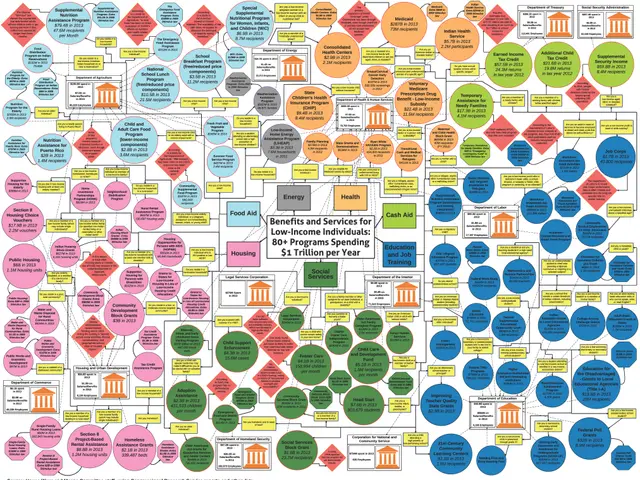Title: Investing in High-Yield Real Estate: A Path to Financial Freedom?
Realty Income: A Powerhouse of Steady Income
If you're looking for an investment that won't set your heart racing but will surely deliver returns year after year, Realty Income might just be the ticket. With a dividend that's as reliable as a grandparent's stories, this real estate investment trust (REIT) could serve up a lifetime of passive income. And with a juicy 5.5% yield right now, it's worth a closer look.
What's Realty Income's Deal?
Realty Income operates as a net lease REIT. That means its tenants are responsible for most of the property-level operating costs. With a tremendous portfolio under its belt, this low-risk investment strategy is a smart bet. Realty Income owns over 15,400 properties, making it the largest net lease REIT in the game. It's roughly four times as large as its closest competitor.
While retail properties account for around 73% of rents, Realty Income also puts its money in industrial assets and some unique niches like casinos and vineyards. Its diverse portfolio ain't just wide; it's deep, too. It reaches far beyond U.S. borders and even stretches across the pond to Europe.
How's Realty Income Doing?
REITs are a great way to earn income via dividends, especially since they avoid being taxed at the corporate level as long as they pay out at least 90% of their taxable earnings as dividends. Shareholders pay individual income taxes on those dividends. Realty Income's ability to continually up its dividend game for thirty years makes it clear that it's a solid performer. With an average annualized increase of 4.3% over that time, it's a steady tortoise that's got investors' attention.
Slow and steady isn't just the speed with which its dividend grows, either. When you combine the steady 4.3% growth with the current 5.5% yield, you get nearly 10% – a return that even the broad market aims for over time.
Realty Income: The Foundation of Your Portfolio
Realty Income isn't exactly a party-starter of a stock, but its dividend yield of 1.2% is hard to beat when compared to the S&P 500. If history has taught us anything, it's that Realty Income is going to continue delivering dividends year after year.
Being the big cheese in the net lease sector has its perks. Realty Income's size requires a steady stream of transactions to make a dent in its earnings, but it's financially strong enough to buy scores of properties. Its largess also allows it to roll up when sellers are looking for buyers. Its financial clout gets it priority in the capital markets, too. There's no reason to think its slow and steady growth trajectory will change.
So, why should dividend investors make Realty Income their core, long-term holding? It's a reliable income stream that could potentially set the stage for a whole future of passive income investments, should you choose to build your portfolio around it.
Enrichment Insights:
- Net Lease Properties: Realty Income focuses on net lease properties, where tenants pay most of the property-level operating costs, leading to reduced financial risk and stable cash flows.
- Portfolio Diversification: With over 15,457 properties leased to more than 1,552 clients, Realty Income has a well-diversified portfolio spanning retail, industrial, and unique niches like casinos and vineyards.
- Long-Term Leases: Realty Income's long-term leases provide stability to its earnings and cash flows while ensuring predictable income for years to come.
- High Occupancy Rate: Realty Income boasts an impressive 98.7% occupancy rate, implying high rent collection rates even during economic downturns.
- Dividend Growth: With a 30-year history of annual dividend increases, Realty Income has demonstrated its financial strength and ability to deliver consistent returns to its investors.
- Conservative Capital Structure: Realty Income's solid finances – aided by a prudent capital structure – allow it to endure market fluctuations and continue providing dependable monthly dividends.
Investing in Realty Income not only provides a reliable source of income, but it also allows for financial diversification, as they invest in various sectors beyond retail, such as industrial assets and unique niches like casinos and vineyards. The company's conservative capital structure, along with its long-term leases and high occupancy rate, ensures a steady income stream and makes it an appealing choice for dividend investors.
Given the company's size and financial strength as the largest net lease REIT, Realty Income can afford to buy properties and secure priority in the capital markets, making it a stable and long-term holding for those seeking consistent returns. By investing in Realty Income, one could potentially establish a solid foundation for their portfolio, paving the way for future passive income investments.








